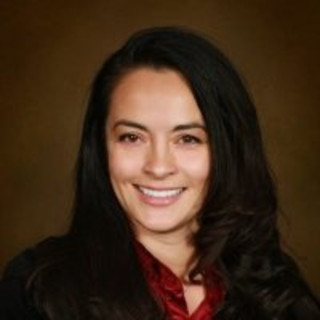
It is during our darkest moments that we must focus to see the light. -Aristotle
Ever notice what you focus on expands?
Since moving to Indiana, I am reminded why I enjoy the arid climate of Denver. No mosquito bites. This morning the local weatherman informed me that this month we've received more rainfall than expected. Good for crops and great for mosquitos. Something I wouldn't necessarily be concerned about as I am not a farmer and have an occupation that allows me to spend most of my time in mosquito-free places. However, with the addition of two puppies to my family of one, I have become aware of mosquitos. They insist on a strict feeding schedule and walks, during which I sacrifice my body to hungry mosquitos.
I don't usually realize that I've been ravaged until lying in bed. When not occupied by triaging my ever-expanding, to-do list, the bites become evident. Usually, I become obsessed with one. Against my better judgment, I itch. What always happens, happens. The more I scratch, the more I itch. It is an endless, maddening cycle. I recall something we learned in medical school about mast cells and histamine. But none of my medical knowledge helps me fight the urge. By morning the offending bite has grown to the size of a silver dollar. Red and swollen, it is obvious that sleep paralysis did not deter my impulse. The most recent offender is on my right forearm and resembles a grossly positive TB test. I am hoping that nobody in the office demands a chest x-ray from me.
I unexpectedly fell in love with surgery during my third year clerkship. At the end of my second year of medical school, I was unsure of what I wanted to do. What I did know was that I was not choosing the life of a surgeon. Confident in my knowledge, I decided to make surgery my first rotation. I selected a location that would give me the greatest surgical experience, the local Knife and Gun Club. I wanted to see everything. I planned to never see it again. I couldn't have been more mistaken.
My eight-week surgery rotation was in the summer, several years before the implementation of work hour restrictions. I took Q3 call with my team. Sleeping was unheard of at a level one trauma center. A post call day was just another day. Under the direction of the third-year Trauma Surgery resident, I lanced shooter's abscesses in the ER. I clumsily wielded a needle driver in my attempt to close the abdomen of a dead gunshot victim. It was exhilarating. I didn't care about anything, my focus on what I was learning. I had found my calling. Having no choice, I choose surgery.
Yet, after entering residency what I focused on changed, again. I was reminded in the reading of a recent article in General Surgery News.
As a resident, I was no longer a student spectator, rather a full participant. I was the person delivering the bad news to families after a grave illness or trauma. Families' anger and grief, like darts, pierced my psyche, although, barely noticeable during a day filled with an endless checklist of patient needs. But, like the mosquito bite that draws my attention while I lie in bed, there were some encounters I could not ignore. These were usually, as the resident in the GSN article describes, the failures. Death. He accurately summarizes the message we all learned early in our medical careers, "There is no heroism in death." In other words, death is failure. He provides an antidote to this inevitable shortcoming, "Our success or failure in these scenarios is not measured by our ability to save every individual under our care, but rather how to fail well."
Appealing idea, however, it strikes me as paradoxical. No surgeon arrives at their goal by accepting failure. Death is failure. Success in failure? We do not become physicians by accepting failure.
During my training I found myself trapped in that paradox. I believed that death was failure and the inevitable occurred. Death. I struggled with this belief as a resident but survived under the shield of my attendings. Once I graduated that layer of protection was ripped off. The practice of General Surgery is, as the GSN author aptly describes, the "business of brokenness." Arriving to us gravely injured or ill, broken people often die. And still, death equals failure. Without the safety net of residency, the failure was all mine.
Something that I was not taught in residency was how to process the perceived failures. Or, how to not become obsessed with a death or an adverse outcome. Instead, I let myself get eaten alive with worry. I found that what I focused on expanded. Overwhelmed, I walked away from clinical medicine. After leaving, the reasons I fell in love with medicine came into focus. The doctor-patient relationship. The intense interaction and intimate connection with patients drew me to surgery and brings me joy. There is no other profession that compares.
After my brief detour, I returned to clinical medicine and focused on what I loved. This drew me to seek work scenarios with fewer distractions and administrative burdens. Working as a Locum Tenens, provided me greater satisfaction from my patient interactions.
I do not believe that death is failure, although many in healthcare do. I have also learned in order to thrive in medicine, I must focus my attention on the joyful and replenishing aspects of being a surgeon. And work to create an environment that fosters that. It is a daily practice, some days easier than others. I remind myself that what I focus on expands and I choose to focus on joy.
Dr. Mary Grace Heyrosa has worked as a General Surgery locum tenens for the past 9 years and is now pursuing fellowship training in Cosmetic Surgery in Indiana. She is also a 2018–2019 Doximity Author.






